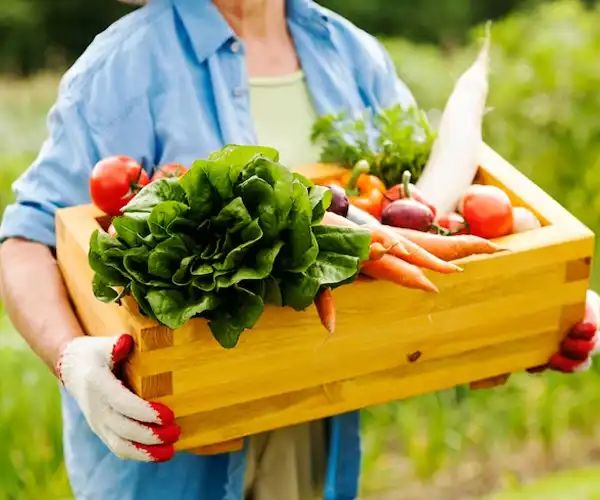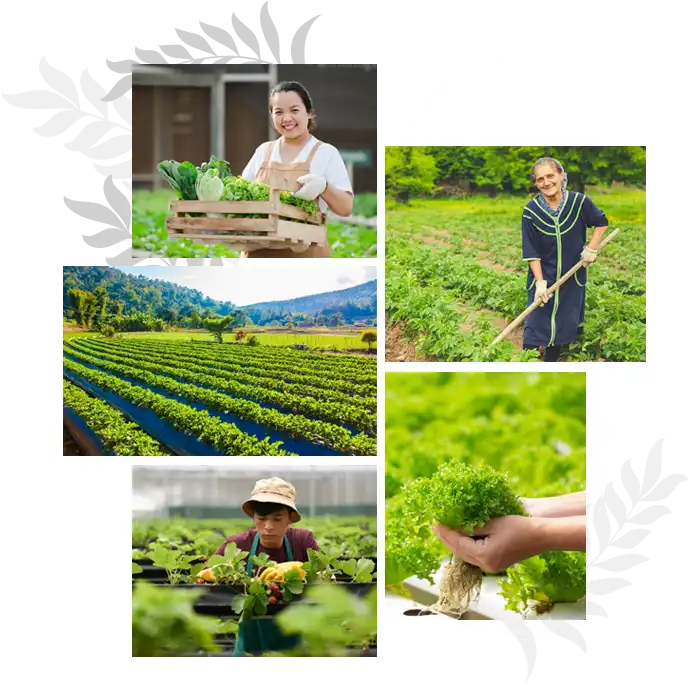
About Organic Farming
At Guide of Life, we strongly support sustainable and organic farming. Our Organic Farming section is here to help you learn and implement practices that are good for the environment and your crops. We provide easy-to-understand information, practical tips, and useful resources so you can grow healthy and nutritious plants while minimizing harm to nature. Our goal is to equip you with the knowledge and tools you need to make a positive impact through organic farming.
Types of Organic Farming
Why Organic Farming?
Touch in mind?
Importance of Organic Agriculture
Environmental Protection: Organic farming practices prioritize the health of the environment. By avoiding synthetic pesticides and fertilizers, organic farmers reduce water and soil pollution, protect biodiversity, and preserve natural resources. Organic farming promotes sustainable agriculture that works in harmony with nature.
Healthier Food:Organic farming aims to produce nutritious and safe food. Organic crops are grown without the use of synthetic chemicals, which means they have lower pesticide residues. Choosing organic can help reduce exposure to potentially harmful substances and provide food that is free from genetically modified organisms (GMOs).
Soil Fertility: Organic farming focuses on building and maintaining healthy soil. By using organic matter, compost, and natural fertilizers, organic farmers enhance soil fertility and structure. This leads to better nutrient availability for plants and long-term soil health.
Animal Welfare: Organic farming standards prioritize the welfare of animals. Organic livestock are raised in conditions that allow them to engage in natural behaviors, have access to outdoor spaces, and consume organic feed. The use of antibiotics and growth hormones is limited or prohibited, promoting the overall well-being of animals.
Support for Sustainable Farming: Choosing organic products supports farmers who adopt sustainable and environmentally friendly practices. By supporting organic farming, you contribute to the growth of a more sustainable agricultural system that benefits both present and future generations.
Our Services
Transition Assistance: We help farmers smoothly transition to organic farming by offering tailored guidance and support throughout the process.
Healthier Food:Organic farming aims to produce nutritious and safe food. Organic crops are grown without the use of synthetic chemicals, which means they have lower pesticide residues. Choosing organic can help reduce exposure to potentially harmful substances and provide food that is free from genetically modified organisms (GMOs).
Soil Health Boost: Our experts analyze soil composition and provide organic solutions to improve fertility, ensuring optimal conditions for plant growth.
Pest Management: We employ natural methods to control pests, reducing the need for synthetic chemicals and safeguarding the health of your crops.
Organic Certification: We guide you through the certification process, ensuring compliance with organic standards and helping you gain recognition for your organic products.
Training and Workshops: Join our educational programs to learn organic farming techniques, such as composting and sustainable crop management.
Ongoing Assistance: We provide continuous support, including farm visits and access to valuable resources, to help you thrive in organic farming.
Conclusion
Organic farming is an environmentally-friendly way of growing plants and raising animals. It avoids synthetic chemicals and instead uses natural methods and materials. Organic farming helps protect the environment, promotes healthier food, maintains soil fertility, and prioritizes animal welfare.
By choosing organic products and supporting organic farming, we can contribute to a sustainable agricultural system for future generations. The Guide of Life provides services such as transition assistance, soil health improvement, pest management, organic certification guidance, training, and ongoing support to help farmers succeed in organic farming.


